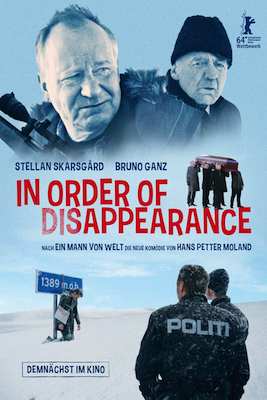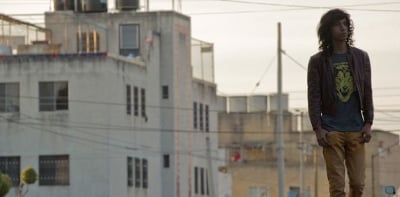The Grand Budapest Hotel
May 18, 2014
Set in on the brink of WWII in the fictional Republic of Zubrowka, the Grand Budapest Hotel is, as its name suggests, rather visually opulent. Director Wes Anderson hones in on the decorative detail to create a stunning spectacle of his ‘grand’ design.
The characters themselves provide key comedic elements to the story; the suave concierge Monsieur Gustave H., portrayed with a fantastically camp demeanour by Voldemort himself; the two primary antagonists, Dmitri Desgoffe-und-Taxis and J. G. Jopling played by Adrien Brody and Willem Dafoe respectively, and a whole lot of cameos from the likes of Bill Murray, Tilda Swinton, and Owen Wilson. Everyone’s favourite Henry V (except apparently those handing out Olivier awards) Jude Law joins the cast to co-narrate the story-within-a-story-within-a-story, and relatively unknown actor Tony Revolori as the young Zero Moustafa provides a streak of sanity in this wonderful conglomeration of slapstick comedy, clever references to real-life events, Ralph Fiennes and a conclusion to break your heart.
Although the events in The Grand Budapest Hotel are affected by the ongoing war, Anderson attempts to place it in an external realm where the conflict is out of sight. The film’s focus instead lies on a (comparatively) menial issue; Monsieur Gustave H. is wrongly accused of murder and attempts to escape from these claims. The plot centres on this, but continuous encounters with the police remind us that, although a comedy, the film contains a serious undertone, reflecting the brutality of war in the wider picture. As the action moves forward, the audience becomes attached to certain characters, and is allowed to enjoy them for a short while before realism overtakes hilarity, demonstrating that the war drained everything from those within its reaches, no matter who they were.
It does not quite constitute satire (apart from the modifying of the Nazi symbol to two pink ‘Z’s on a black background), but the film’s narration gives the audience an insight into lives of those not quite in the central path of the war. I enjoyed it immensely and would fully recommend seeing it, if only to watch Ralph Fiennes dressed as a concierge shout at Edward Norton to “keep your hands off my lobby boy!”
Olivia Hickey
Filed under: Film, TV & Tech
Tagged with: film reviews



Comments